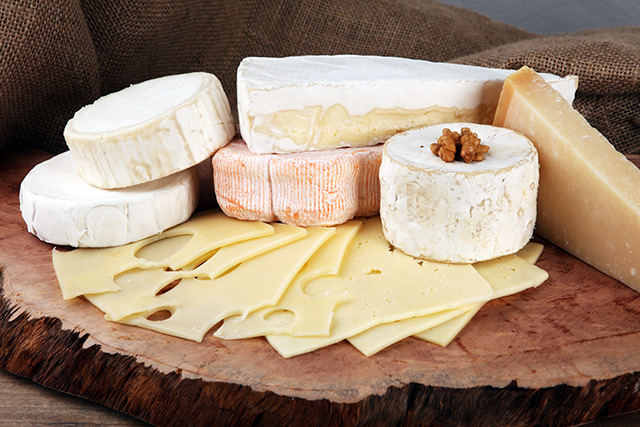
But you should care. Cheese is an invaluable stock item when SHTF. After all, cheese has been around for thousand of years -- way before ice box refrigerators were invented. They’re not only delicious, they’re teeming with a lot of health benefits. More importantly, they make for great additions to your survival cache.
An introduction to the different types of cheese is necessary. There are three types of cheese: soft, semi-soft, and hard. Soft cheeses are those buttery, creamy ones such as feta, blue cheese, and Mexican queso fresco. As wonderful as these are, these contain too much moisture and do not store very well. Semi-soft varieties (e.g. monterey jack, mozzarella, and colby) fare slightly better. However, if you’re really looking for the cheese to have to when SHTF, go for hard cheeses like cheddar, parmesan, gouda, and romano.
As their name suggests, hard cheeses are so because of their extensive moisture extraction process. This allows them to last for longer than other dairy products. Current opinion on the matter is that hard cheeses can be kept in an ice box refrigerator for four months if left unopened. Once they are opened, however, they should be consumed with a month.
Nevertheless, preppers know that hard cheeses can last for years and still taste really good. True, the aging process does sharpen the taste of the cheese (and some of the health benefits are lessened) but we’re talking about survival, not culinary perfection. To extend shelf life, store hard cheeses in original wrappers or in a tightly closed container to keep moisture out.
You still need to know if your cheese is bad, though. Just because we say that they can last long doesn’t mean you can eat any block of cheese just laying around. It’s fairly simple to recognize spoiled cheese. Here are some tests to try:
- Touch -- Cheese should be smooth and hard with a slight cushion feel.
- Sight -- Mold can be scraped off hard cheese or wiped off with vinegar. Pay attention to black mold or mold that is more than surface deep. This could be a sign of more harmful bacteria.
- Smell -- This may be a little difficult for those not used to cheese. The product has a distinct aroma and even fresh cheese has a smell. However, if you detect an extremely repugnant scent to your cheese, it’s best to avoid eating it.
- Taste -- When in doubt, there is no doubt. Do NOT try a cheese that you suspect has gone bad. If the first three tests leave you wondering, just throw the cheese away. One tip we’d recommend is stocking up on cheeses that you are familiar with. This way you know if the taste is off.
The best way to ensure that your cheese is safe? Try making your own. You can read many online guides on how to do this, even in emergency situations.
Cheese is a healthy item to stockpile
People typically associate canned goods with survival situations. While these items do last long and can sustain us, they’re not exactly the healthiest things you can eat. Cheese, on the other hand, is both long-lasting and versatile.
Cheese is a dairy product and contains all the nutrients you would find in milk or yogurt, though in different amounts depending on the variety of cheese you’ve chosen. Some benefits you can expect from cheese are:
- Stronger bones and teeth -- Cheese is a great source of calcium. (Related: Say cheese! How this delectable treat can actually be good for you.)
- Healthier heart -- Studies have shown that an increased intake of cheese improves cardiovascular health.
- Enhanced immune system -- Most cheese contain probiotics which improve your gut microbiota profile.
To read more articles on the goodness of cheese, go to Nutrients.news.
Sources include:
Please contact us for more information.























